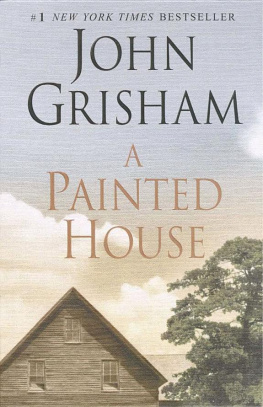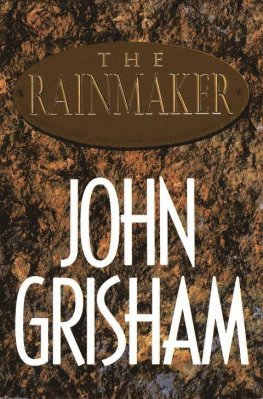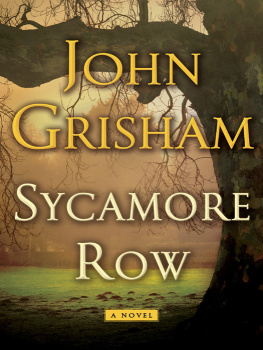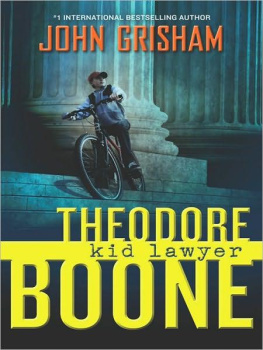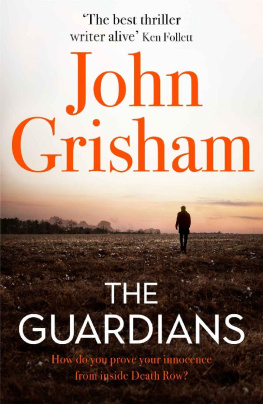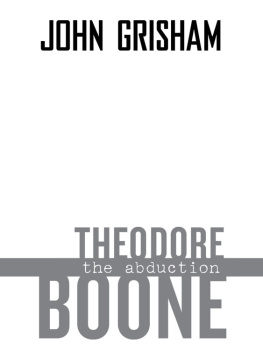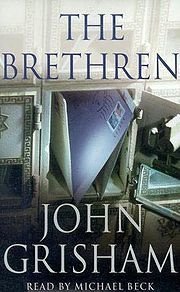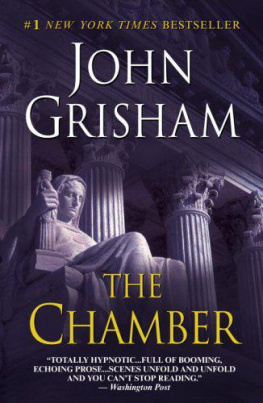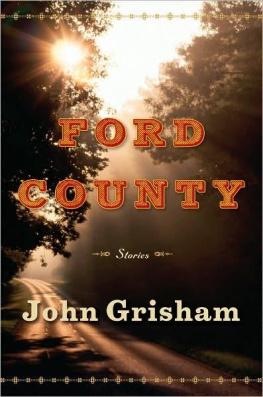John Grisham - A Painted House
Here you can read online John Grisham - A Painted House full text of the book (entire story) in english for free. Download pdf and epub, get meaning, cover and reviews about this ebook. year: 2001, genre: Non-fiction. Description of the work, (preface) as well as reviews are available. Best literature library LitArk.com created for fans of good reading and offers a wide selection of genres:
Romance novel
Science fiction
Adventure
Detective
Science
History
Home and family
Prose
Art
Politics
Computer
Non-fiction
Religion
Business
Children
Humor
Choose a favorite category and find really read worthwhile books. Enjoy immersion in the world of imagination, feel the emotions of the characters or learn something new for yourself, make an fascinating discovery.
- Book:A Painted House
- Author:
- Genre:
- Year:2001
- Rating:3 / 5
- Favourites:Add to favourites
- Your mark:
- 60
- 1
- 2
- 3
- 4
- 5
A Painted House: summary, description and annotation
We offer to read an annotation, description, summary or preface (depends on what the author of the book "A Painted House" wrote himself). If you haven't found the necessary information about the book — write in the comments, we will try to find it.
A Painted House — read online for free the complete book (whole text) full work
Below is the text of the book, divided by pages. System saving the place of the last page read, allows you to conveniently read the book "A Painted House" online for free, without having to search again every time where you left off. Put a bookmark, and you can go to the page where you finished reading at any time.
Font size:
Interval:
Bookmark:
A Painted House
John Grisham
The hill people and the Mexicans arrived on the same day. It was a Wednesday, early in September 1952. The Cardinals were five games behind the Dodgers with three weeks to go, and the season looked hopeless. The cotton, however, was waist-high to my father, over my head, and he and my grandfather could be heard before supper whispering words that were seldom heard. It could be a good crop.
Thus begins the new novel from John Grisham, a story inspired by his own childhood in rural Arkansas. The narrator is a farm boy named Luke Chandler, age seven, who lives in the cotton fields with his parents and grandparents in a little house thats never been painted. The Chandlers farm eighty acres that they rent, not own, and when the cotton is ready they hire a truckload of Mexicans and a family from the Ozarks to help harvest it.
For six weeks they pick cotton, battling the heat, the rain, the fatigue, and, sometimes, each other. As the weeks pass Luke sees and hears things no seven-year-old could possibly be prepared for, and finds himself keeping secrets that not only threaten the crop but will change the lives of the Chandlers forever.
A Painted House is a moving story of one boys journey from innocence to experience.
John Grisham
A Painted House
The hill people and the Mexicans arrived on the same day. It was a Wednesday, early in September 1952. The Cardinals were five games behind the Dodgers with three weeks to go, and the season looked hopeless. The cotton, however, was waist-high to my father, over my head, and he and my grandfather could be heard before supper whispering words that were seldom heard. It could be a good crop.
They were farmers, hardworking men who embraced pessimism only when discussing the weather and the crops. There was too much sun, or too much rain, or the threat of floods in the lowlands, or the rising prices of seed and fertilizer, or the uncertainties of the markets. On the most perfect of days, my mother would quietly say to me, Dont worry. The men will find something to worry about.
Pappy, my grandfather, was worried about the price for labor when we went searching for the hill people. They were paid for every hundred pounds of cotton they picked. The previous year, according to him, it was $1.50 per hundred. Hed already heard rumors that a farmer over in Lake City was offering $1.60.
This played heavily on his mind as we rode to town. He never talked when he drove, and this was because, according to my mother, not much of a driver herself, he was afraid of motorized vehicles. His truck was a 1939 Ford, and with the exception of our old John Deere tractor, it was our sole means of transportation. This was no particular problem except when we drove to church and my mother and grandmother were forced to sit snugly together up front in their Sunday best while my father and I rode in the back, engulfed in dust. Modern sedans were scarce in rural Arkansas.
Pappy drove thirty-seven miles per hour. His theory was that every automobile had a speed at which it ran most efficiently, and through some vaguely defined method he had determined that his old truck should go thirty-seven. My mother said (to me) that it was ridiculous. She also said he and my father had once fought over whether the truck should go faster. But my father rarely drove it, and if I happened to be riding with him, he would level off at thirty-seven, out of respect for Pappy. My mother said she suspected he drove much faster when he was alone.
We turned onto Highway 135, and, as always, I watched Pappy carefully shift the gears-pressing slowly on the clutch, delicately prodding the stick shift on the steering column-until the truck reached its perfect speed. Then I leaned over to check the speedometer: thirty-seven. He smiled at me as if we both agreed that the truck belonged at that speed.
Highway 135 ran straight and flat through the farm country of the Arkansas Delta. On both sides as far as I could see, the fields were white with cotton. It was time for the harvest, a wonderful season for me because they turned out school for two months. For my grandfather, though, it was a time of endless worry.
On the right, at the Jordan place, we saw a group of Mexicans working in the field near the road. They were stooped at the waist, their cotton sacks draped behind them, their hands moving deftly through the stalks, tearing off the bolls. Pappy grunted. He didnt like the Jordans because they were Methodists-and Cubs fans. Now that they already had workers in their fields, there was another reason to dislike them.
The distance from our farm to town was fewer than eight miles, but at thirty-seven miles an hour, the trip took twenty minutes. Always twenty minutes, even with little traffic.
Pappy didnt believe in passing slower vehicles in front of him. Of course, he was usually the slow one. Near Black Oak, we caught up to a trailer filled to the top with snowy mounds of freshly picked cotton. A tarp covered the front half, and the Montgomery twins, who were my age, playfully bounced around in all that cotton until they saw us on the road below them. Then they stopped and waved. I waved back, but my grandfather did not. When he drove, he never waved or nodded at folks, and this was, my mother said, because he was afraid to take his hands from the wheel. She said people talked about him behind his back, saying he was rude and arrogant. Personally, I dont think he cared how the gossip ran.
We followed the Montgomery trailer until it turned at the cotton gin. It was pulled by their old Massey Harris tractor, and driven by Frank, the eldest Montgomery boy, who had dropped out of school in the fifth grade and was considered by everyone at church to be headed for serious trouble.
Highway 135 became Main Street for the short stretch it took to negotiate Black Oak. We passed the Black Oak Baptist Church, one of the few times wed pass without stopping for some type of service. Every store, shop, business, church, even the school, faced Main Street, and on Saturdays the traffic inched along, bumper to bumper, as the country folks flocked to town for their weekly shopping. But it was Wednesday, and when we got into town, we parked in front of Pop and Pearl Watsons grocery store on Main.
I waited on the sidewalk until my grandfather nodded in the direction of the store. That was my cue to go inside and purchase a Tootsie Roll, on credit. It only cost a penny, but it was not a foregone conclusion that I would get one every trip to town. Occasionally, he wouldnt nod, but I would enter the store anyway and loiter around the cash register long enough for Pearl to sneak me one, which always came with strict instructions not to tell my grandfather. She was afraid of him. Eli Chandler was a poor man, but he was intensely proud. He would starve to death before he took free food, which, on his list, included Tootsie Rolls. He wouldve beaten me with a stick if he knew I had accepted a piece of candy, so Pearl Watson had no trouble swearing me to secrecy.
But this time I got the nod. As always, Pearl was dusting the counter when I entered and gave her a stiff hug. Then I grabbed a Tootsie Roll from the jar next to the cash register. I signed the charge slip with great flair, and Pearl inspected my penmanship. Its getting better, Luke, she said.
Not bad for a seven-year-old, I said. Because of my mother, I had been practicing my name in cursive writing for two years. Wheres Pop? I asked. They were the only adults I knew who insisted I call them by their first names, but only in the store when no one else was listening. If a customer walked in, then it was suddenly Mr. and Mrs.
Watson. I told no one but my mother this, and she told me she was certain no other child held such privilege.
In the back, putting up stock, Pearl said. Wheres your grandfather?
Next pageFont size:
Interval:
Bookmark:
Similar books «A Painted House»
Look at similar books to A Painted House. We have selected literature similar in name and meaning in the hope of providing readers with more options to find new, interesting, not yet read works.
Discussion, reviews of the book A Painted House and just readers' own opinions. Leave your comments, write what you think about the work, its meaning or the main characters. Specify what exactly you liked and what you didn't like, and why you think so.

